 W
WHans Aarsman is a Dutch photographer, author, and lecturer at the Rijksakademie in Amsterdam. He is a significant figure in the New Topography movement. Many of Aarsman's works are in the Netherlands Photo Museum.
 W
WSamuel Marek "Milo" Anstadt was a Dutch Jewish writer and journalist.
 W
WGovert Bidloo or Govard Bidloo was a Dutch Golden Age physician, anatomist, poet and playwright. He was the personal physician of William III of Orange-Nassau, Dutch stadholder and King of England, Scotland and Ireland.
 W
WFrederik "Frits" Bolkestein is a retired Dutch politician of the People's Party for Freedom and Democracy (VVD) and businessperson who served as European Commissioner from 16 September 1999 until 22 November 2004.
 W
WGerard Brandt was a Dutch preacher, playwright, poet, church historian, biographer and naval historian. A well-known writer in his own time, his works include a Life of Michiel de Ruyter and a Historie der vermaerde zee- en koopstadt Enkhuisen.
 W
WGerbrand Adriaenszoon Bredero was a Dutch poet and playwright in the period known as the Dutch Golden Age.
 W
WDirck Volckertszoon Coornhert, also known as Theodore Cornhert, was a Dutch writer, philosopher, translator, politician, theologian and artist. Coornhert is often considered the Father of Dutch Renaissance scholarship.
 W
WSamuel Coster was a Dutch playwright.
 W
WMax Croiset was a Dutch actor. He appeared in 30 films between 1934 and 1993. He starred in the film The Village on the River, which was entered into the 9th Berlin International Film Festival.
 W
WMaurits Rudolph Joël Dekker was a Dutch novelist and playwright.
 W
WAdriaan van Dis is a Dutch author. He debuted in 1983 with the novella Nathan Sid. In 1995 his book Indische Duinen, which in its narrative is a follow up to his debut novella, was also awarded several prestigious literary awards.
 W
WArjan Ederveen Janssen is a Dutch actor, voice actor, comedian, TV scriptwriter and TV director. He participated in the TV series Theo en Thea, Kreatief met Kurk and 30 minuten and played in the musicals Hairspray and Lang en Gelukkig. He wrote the play Moord in de Kerststal. Ederveen owns a TV production company, De Toko. His manager is Evelien Jansen.
 W
WMarcellus Emants was a Dutch novelist whose work is considered one of the few examples of Dutch Naturalism. His writing is seen as a first step towards the renewing force of the Tachtigers towards modern Dutch literature, a movement which started around the 1880s. His most well-known work is A Posthumous Confession, published in 1894, translated by J. M. Coetzee.
 W
WWillem Godschalck van Focquenbroch was a Dutch poet and playwright. Aside from satirical and burlesque plays and poetry, he also wrote more serious works in a Petrarchic tradition. Whereas there was little attention for Focquenbroch in the nineteenth century, interest in him renewed in the twentieth century.
 W
WSeth Gaaikema was a Dutch cabaret artist, writer, and lyricist.
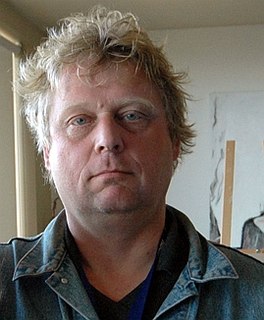 W
WTheodoor "Theo" van Gogh was a Dutch director and film and television producer, actor and author. He directed "Submission: Part 1", a short film written by Somali writer and politician Ayaan Hirsi Ali, which criticized the treatment of women in Islam in strong terms. On 2 November 2004, van Gogh was assassinated by Mohammed Bouyeri, a Dutch-Moroccan who objected to the film's controversial message. The last film van Gogh had completed before his death, 06/05, was a fictional exploration of the assassination of Dutch politician Pim Fortuyn (1948–2002). It was released posthumously in December 2004, a month after van Gogh's assassination.
 W
WHugo Grotius, also known as Huig de Groot and in Dutch as Hugo de Groot, was a Dutch humanist, diplomat, lawyer, theologian, jurist, poet and playwright.
 W
WArnon Yasha Yves Grunberg is a Dutch writer of novels, essays, and columns, as well as a journalist. He wrote some of his work under the heteronym Marek van der Jagt. He lives in New York.
 W
WHerman Heijermans, was a Dutch writer.
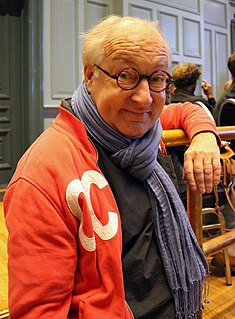 W
WJoseph Jacobus Maria "Youp" van 't Hek is a Dutch comedian, author, columnist, singer-songwriter, playwright, and critic.
 W
WAbel Jacob Herzberg was a Dutch Jewish lawyer and writer, whose parents were Russian Jews who had come to the Netherlands from Lithuania. Herzberg was trained as a lawyer and began a legal practice in Amsterdam, and became known as a legal scholar also. He was a Zionist from an early age, and around the time of the outbreak of World War II he attempted to emigrate with his family to Palestine. During the war he remained active in Jewish organizations until he was interned, with his wife, in Bergen-Belsen concentration camp, where his legal background and status as a legal scholar earned him a seat on a prisoners' court. After their captors moved them from Bergen-Belsen, he and his wife were later liberated by the Soviets and made it back to the Netherlands, where they were reunited also with their children. He continued his legal practice in Amsterdam, though he traveled to Palestine and was offered an administrative position in newly-founded Israel.
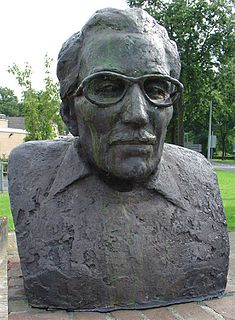 W
WHans Heyting, born Johannes Heijting was a Dutch poet, playwright, radio personality, children's book writer and painter. Writing in Drèents, he was one of the earliest Drèents writers to express personal themes and is considered to have been "the first true, modern Drèents poet who innovated old forms and showed new ways".
 W
WPieter 't Hoen was a Dutch journalist, poet, and politician who played an important role during the Patriottentijd as the editor of De Post van den Neder-Rhijn.
 W
WPieter Corneliszoon Hooft - Knight in the Order of Saint Michael - was a Dutch historian, poet and playwright who lived during the Dutch Golden Age.
 W
WVictor Ido is the main alias of the Indo (Eurasian) Dutch language writer and journalist Hans van de Wall. Born in Surabaya, Dutch East Indies from a Dutch father and Indo (Eurasian) mother. Ido was the Art Editor of P.A.Daum's Bataviaasch Nieuwsblad and later the Chief Editor of newspaper Batavia's Handelsblad as well as an accomplished musician (organist).
 W
WMichaël Henricus Gertrudis (Michiel) van Kempen is a Dutch writer, art historian and literary critic. He has written novels, short stories, essays, travel literature and scenarios. He was the compiler of a huge range of anthologies of Dutch-Caribbean literature and wrote an extensive history of the literature of Suriname, in two volumes.
 W
WGerrit Jan Komrij was a Dutch poet, novelist, translator, critic, polemic journalist and playwright. He rose to prominence in the early 1970s writing poetry that sharply contrasted with the free-form poetry of his contemporaries. He acquired a reputation for his prose in the late 1970s, writing acerbic essays and columns often critical of writers, television programs, and politicians. As a literary critic and especially as an anthologist he had a formative influence on Dutch literature: his 1979 anthology of Dutch poetry of the 19th and 20th centuries reformed the canon, and was followed by anthologies of Dutch poetry of the 17th and 18th centuries, of Afrikaans poetry, and of children's poetry. Those anthologies and a steady stream of prose and poetry publications solidified his reputation as one of the country's leading writers and critics; he was awarded the highest literary awards including the P. C. Hooft Award (1993), and from 2000 to 2004 he was the Dutch Dichter des Vaderlands. Komrij died in 2012 at age 68.
 W
WArie "Aad" Kosto is a retired Dutch politician of the Labour Party (PvdA) and jurist.
 W
WJan Harmenszoon Krul (1601–1646) was a Dutch Catholic playwright. His portrait was painted in 1633 by Rembrandt. Krul founded the Amsterdamsche Musijck Kamer, devoted to the cultivation of music drama.
 W
WPieter Langendijk was a damask weaver, city artist, dramatist, and poet.
 W
WArjen Henrik Lubach is a Dutch comedian, author and television presenter. He hosts the weekly news satire television show Zondag met Lubach.
 W
WGeorgius Macropedius was a Dutch humanist, schoolmaster and "the greatest Latin playwright of the 16th century."
 W
WIsraël Chaim "Ischa" Meijer was a Dutch journalist, television presenter, radio presenter, critic and author. He survived the Nazi concentration camp Bergen Belsen along with his parents.
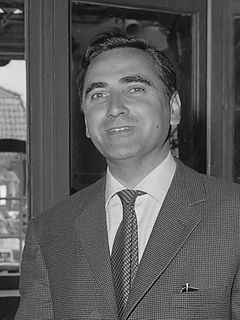 W
WWim Meuldijk was a Dutch writer, illustrator, and screenwriter. He is the creator of Ketelbinkie, one of the most popular Dutch comics after World War II, and of Pipo de Clown, the star of a television show that ran from 1958 to 1980 which Meuldijk produced, filmed, and for which he wrote the script.
 W
WLodewijk Meyer was a Dutch physician, classical scholar, translator, lexicographer, and playwright. He was an Enlightenment radical who was one of the more prominent members of the circle around the philosopher Benedictus de Spinoza.
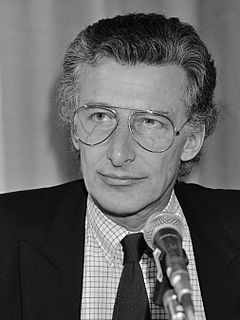 W
WHarry Kurt Victor Mulisch was a Dutch writer. He wrote more than eighty novels, plays, essays, poems, and philosophical reflections. Mulisch's works have been translated into over thirty languages.
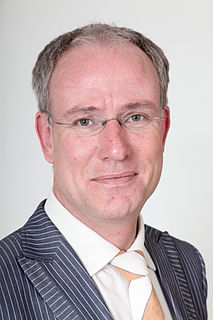 W
WAtzo Nicolaï was a Dutch politician of the People's Party for Freedom and Democracy (VVD) and businessman.
 W
WWillem Jan Otten is a Dutch prose writer, playwright and poet, who in 2014 won the P. C. Hooft Award for lifetime literary achievement.
 W
WTheodore Rodenburgh was a diplomat and playwright of the Dutch Golden Age. His first name is sometimes spelled Theodoor, and occasionally the nick-name Dirk is seen; his last name is sometimes spelled Rodenburg or Rodenberg.
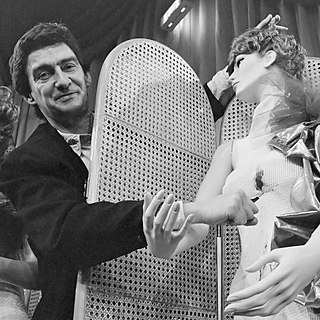 W
WTomas Ross is a Dutch writer who is famous for his historical criminal thrillers.
 W
WWillem Theodoor "Wim T." Schippers is a Dutch artist, comedian, television director, and voice actor. During the 1960s, he worked mostly as a visual artist, associated with the international Fluxus-movement. As a television writer, director, and actor he is responsible for some of the most notable and controversial shows on Dutch televisions from the 1960s to the 1990s, creating a number of lasting characters and enriching the language with terms and expressions first coined in his shows. In addition, he voiced the characters of Ernie and Kermit the Frog on the Dutch version of Sesame Street. For his shows, he has written over three hundred songs, and his reputation has changed from being Dutch television's "enfant terrible" to an acknowledged master in a variety of genres.
 W
WFedde Schurer was a Dutch schoolteacher, journalist, language activist and politician, and one of the most influential poets in the West Frisian language of the 20th century.
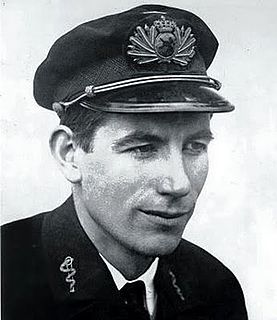 W
WJan Jacob Slauerhoff, who published as J. Slauerhoff, was a Dutch poet and novelist. He is considered one of the most important Dutch language writers.
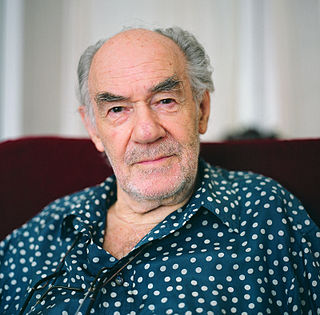 W
WGeorge Sluizer was a Dutch filmmaker whose credits included features as well as documentary films.
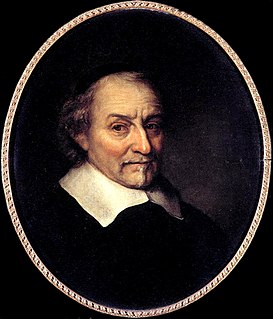 W
WJoost van den Vondel was a Dutch poet, writer and playwright. He is considered the most prominent Dutch poet and playwright of the 17th century. His plays are the ones from that period that are still most frequently performed, and his epic Joannes de Boetgezant (1662), on the life of John the Baptist, has been called the greatest Dutch epic.
 W
WJan Jansz. Vos was a Dutch playwright and poet. A glassmaker by trade, he also played an important role as stage-manager and director of the theatre. He organized, on the mayors' orders, processions and splendid decorated floats, which sometimes drew disapproval, criticism, and derision.
 W
WJan van Walré, was a 19th-century bookseller, poet and playwright from the Northern Netherlands.